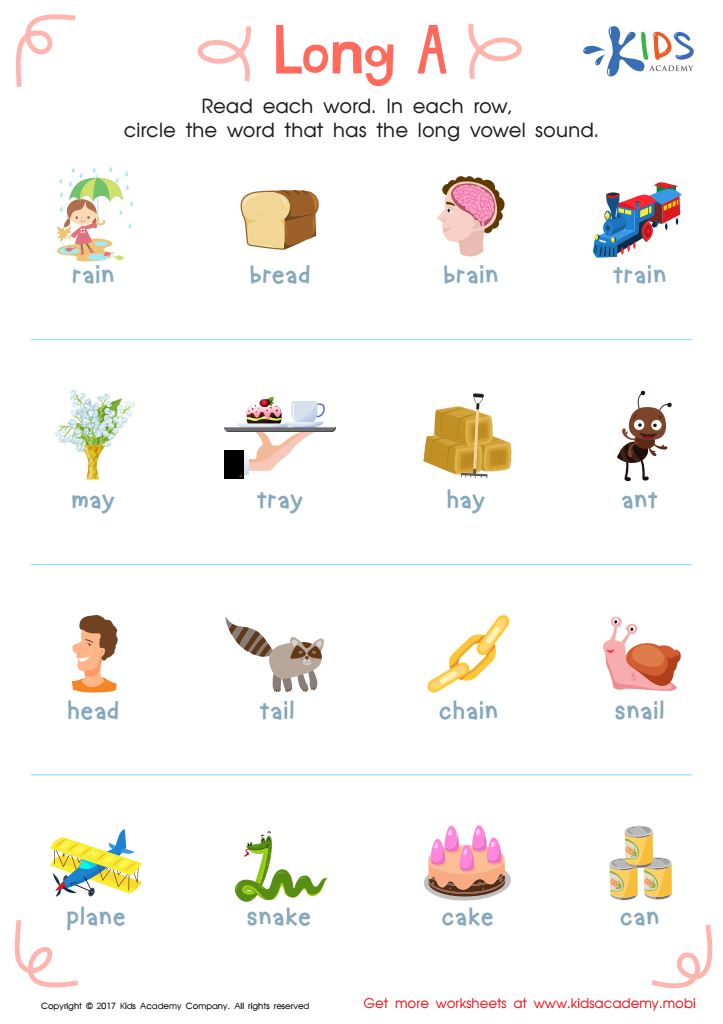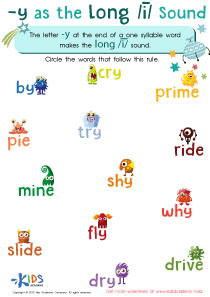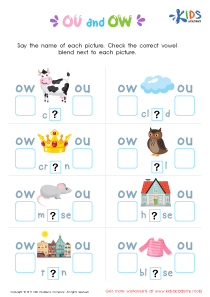Normal Long Vowels Worksheets for Ages 6-9 - Page 2
30 filtered results
-
From - To
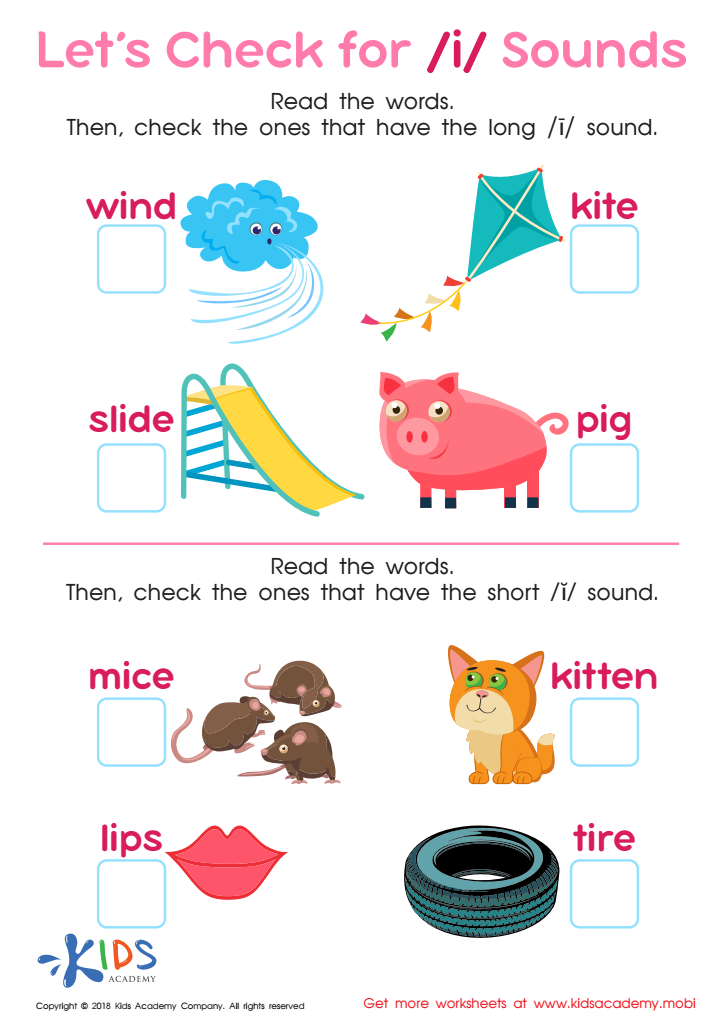

Let's Check for «i» Sounds Worksheet


Long and Short E Worksheet
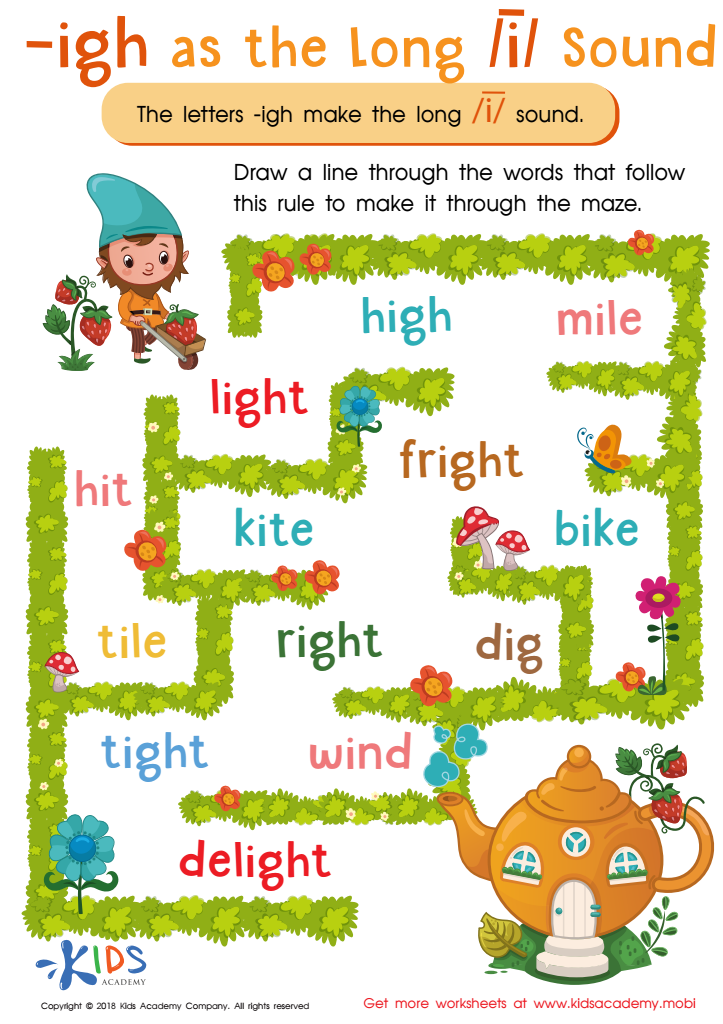

Reading: IGH as Long I Worksheet
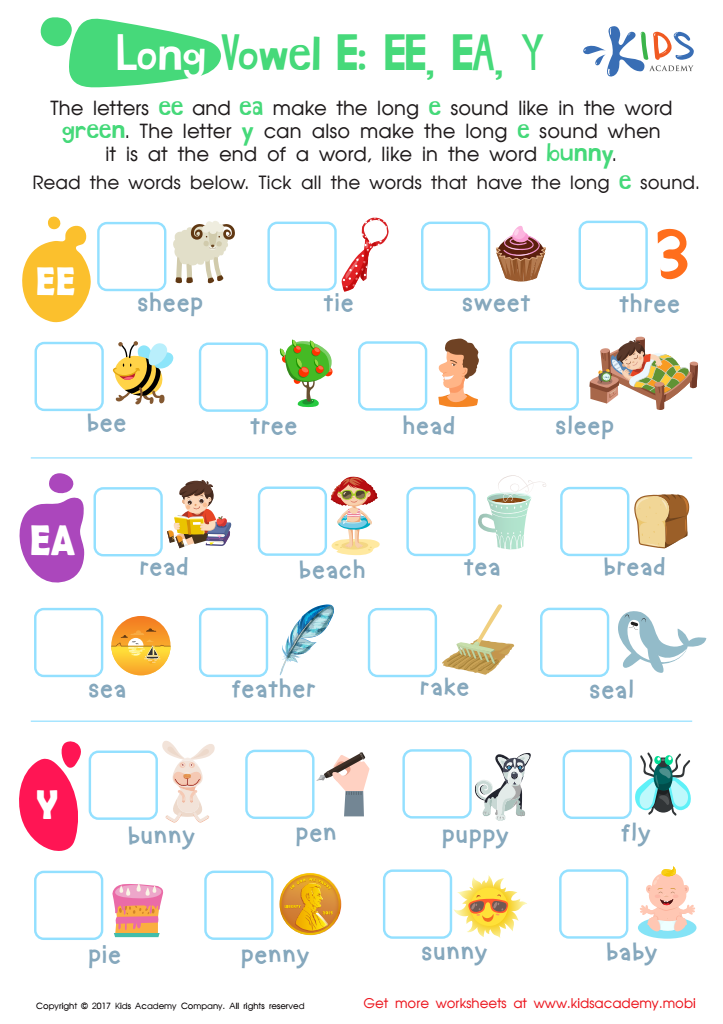

Long Vowel E Printable
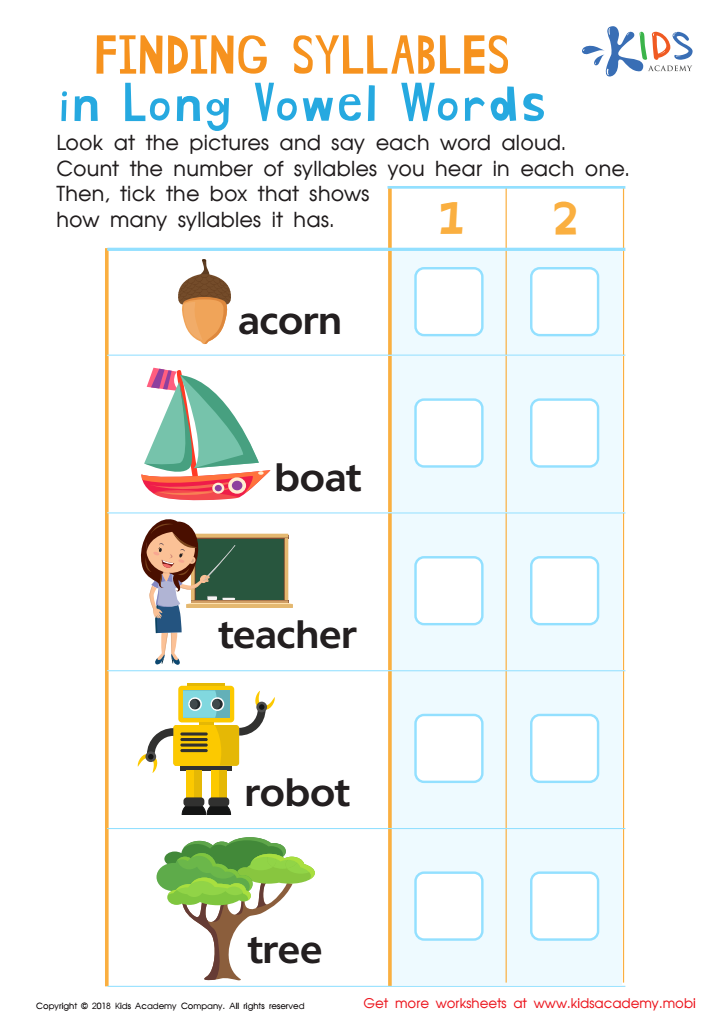

Finding Syllables in Long Vowel Words Worksheet
Normal long vowels, such as in the words "cake," "like," and "hope," are critical for children aged 6-9, as they form the foundation for reading and writing proficiency. At this age, children are developing their phonemic awareness, which is essential for decoding new words. Understanding long vowels assists in distinguishing between words and enhances vocabulary development, important for effective communication.
Parents and teachers should prioritize long vowel instruction because it impacts overall literacy development. Mastery in recognizing and producing long vowel sounds leads to better reading fluency, enabling children to tackle more complex texts as they progress in school. Additionally, the ability to articulate long vowels properly supports spelling skills, allowing children to handle basic spelling patterns and enhance their writing.
Beyond academics, emotional and cognitive engagement with language through songs, rhymes, and storytelling helps foster a love of reading. When children comprehend long vowels, they experience greater success in phonics-focused activities, bolstering their confidence as learners. Thus, nurturing their understanding of normal long vowels is paramount to cultivating strong readers and communicators, ultimately setting the stage for lifelong literacy skills and a love for language.

 Assign to My Students
Assign to My Students
